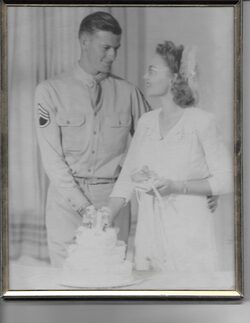- Home
- Index
-
My Books
- Book List
- Writing/Reading Articles Listing
-
My Short Stories
- What God Lost
- What God Lost — Part 2
- When Hope Was Lost
- A Battle in the Heavens
- To Live Forever
- Finding Peace
- Empty Hands
- From Fire and Thunder to Love and Submission
- The Coming One
- Forgiveness Made Possible
- The Innkeeper's Wife
- Do You Have The Right Words?
- The Lamb of God As Told by a Scribe
- What Love Is This?
- When Heaven Came Down
- Family
- Faith
This is the most beautiful Love story I have ever read.


This was a great tribute to beautiful people. The legacy created by Marge and Lowell has made a huge impact on my life, and surely the life of countless others. They’ve always led by example, and were a true testament to the power of faith.
I’ll never forget Lowell encouraging me to pick along on my guitar at church, nor will I ever forget his calm and gentle nature. He let me play the incredibly valuable and rare 1940’s Martin acoustic that was probably his prized guitar when I was only 13 years old. I could have never afforded to replace it if I’d hurt it, but he let me play it anyway!
I know that Lowell’s and Marjorie’s legacy will live on indefinitely through the love and care that their children and grandchildren have for the people surrounding them.
Thank you for writing this, Sonia. I never would have known the many trials and challenges that faced the Rutherford’s through their life, because their love always shined brighter.